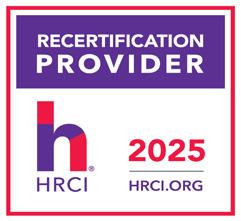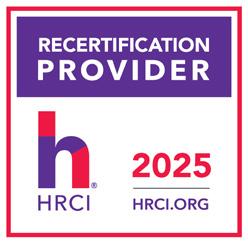

Pre-Conference

Wednesday January 21
Option 1: Costing Labor Contracts
9:00 a.m. - 4:00 p.m.
The keys to successful negotiations include planning and costing. Just like planning a vacation, the amount of time and effort you put into planning and costing can determine the success of the trip. Costing contract proposals is similar to costing excursions on a vacation - they all sound like a good idea but can we afford them? Join us at this workshop to learn the importance of costing and methods you can use to make costing easy. Participants will not only be provided with the tools to cost proposals, but will engage in interactive exercises where they set up an MOU Master Spreadsheet and proposals to cost. Bring your laptop and your Excel skills.
This session is also part of our Labor Relations Certificate program. We’ve added Bonus Content, since it is also our pre-conference session:
Compensation Surveys and Collective Bargaining!
As a bonus to this year’s pre-conference workshop, additional information on the development, impact, and usefulness of compensation surveys in collective bargaining will be highlighted shared with attendees!
Option 2: Internal Affairs: Building Bulletproof Public Safety Investigations that Survive Discipline and Appeal
9:00 a.m. - 4:00 p.m.
A public safety investigation doesn’t end when the interview is over—it begins there. The strength of your Internal Affairs investigation is often the deciding factor between upholding discipline or watching it unravel on appeal. When a police officer and firefighter challenges discipline, it’s your report, your strategy, and your decisions that come under fire. This dynamic, POST-approved one-day course provides a step-by-step roadmap for conducting legally defensible, procedurally sound, and strategically strong public safety administrative investigations. You’ll learn what decision-makers, arbitrators, and courts look for—and how to deliver it. Whether you’re a Chief, IA investigator, or HR professional, this training delivers immediately usable tools to protect your agency’s discipline decisions, credibility, ensure fairness, and withstand legal scrutiny. This seminar will include the following:
• Overview of the Public Safety Officers Procedural Bill of Rights (POBRA) and Firefighters Bill of Rights (FBOR)—and what happens when you get it wrong;
• How to launch and structure a public safety investigation that meets both legal and operational needs;
• Tactics for securing and handling evidence, documents, and digital records;
• Effective interview techniques, how to manage representation under POBRA and FBOR, and pitfalls to avoid that can derail your investigation;
Wednesday January 21
• How to avoid the most common—and costly—mistakes in administrative investigations;
• Trends in public safety discipline: from AI usage and Brady issues to confidentiality, offduty conduct, and evolving social norms;
• The strategic implications of the quality of your investigation on Skelly conferences, arbitration, and civil service appeals.
Option 3: Training Academy for Workplace Investigators
9:00 a.m. - 4:00 p.m.
The Civil Rights Department (CRD) Guidelines recommends that all investigators receive a full day of investigation instruction that covers information about the law shaping investigations, recommended practices, and skill-building exercises. This preconference session meets these CRD guidelines and recommended best practices. Presented by two leading workplace investigators, this session includes:
• When to investigate
• Standards for conducting a legally compliant investigation
• Investigator qualifications
• What to investigate
• How to investigate
• Core investigative skills
1. Planning the investigation
2. Reviewing relevant documents
3. Identifying and interviewing witnesses
4. Making credibility determinations
5. Analyzing the evidence and making factual findings
6. Writing the report
• Skill-building exercises
Ask the Expert

The Ask the Expert booth will be staffed throughout the conference’s breaks and free time. Stop by to discuss any pressing labor, employment or education law questions you may have.
Thursday: 8:00 a.m. - 8:45 a.m. 1:00 p.m. - 1:20 p.m. 2:30 p.m. - 3:20 p.m.
Friday: 8:00 a.m. - 9:00 a.m. 10:00 a.m. - 10:30 a.m.
Pre-Conference Registration Information
RATES
Early Bird: Regular:

$475 per attendee (before 12/20/2025)
$550 per attendee (after 12/20/2025)
Register Here
http://bit.ly/3KbSphJ
Cancellation Policy: Cancellations received before January 6, 2026 are eligible for a full refund, minus a nonrefundable $40 administrative fee. Cancellations received after January 6, 2026 are not eligible for a refund. No-shows will not be refunded. Substitutions are allowed at any time prior to January 13, 2026 at no additional charge. To cancel or substitute a registration, please return to the LCW Registration page (https://cvent.me/w7zMdL) and click on “Already Registered.” For substitution considerations after January 13, 2026, please email events@ lcwlegal.com
LCW programs are designed exclusively for management representatives. As such, registration is limited to individuals who represent employers. We do not accept registrations from individuals employed by unions, union-side law firms or consulting firms that represent employees in labor relations matters, or from attorneys or organizations whose primary role is to represent employees.
LCW reserves the right to decline registrations that do not align with these criteria. Those registrations will be denied and monies returned, less a $40 administrative fee.
CREDITS
Attendees can earn the following credit towards their recertification:
Each Full Day Pre-Conference Session:
• 6 hours general MCLE
• 6 (HR (General)) recertification hours
• 6 hours POST (Pending POST approval for the Internal Affairs: Building Bulletproof Public Safety Investigations that Survive Discipline and Appeal session)
HRCI:

This program has been approved for 6 (HR (General)) recertification credit hours toward aPHR™, aPHRi™, PHR®, PHRca®, SPHR®, GPHR®, PHRi™ and SPHRi™ recertification through the HR Certification Institute. (Note: LCW is an approved HRCI provider. LCW’s use of HRCI’s name/seal does not constitute HRCI’s endorsement of the quality of the program.)
POST:
The Pre-Conference session: Internal Affairs: Building Bulletproof Public Safety Investigations that Survive Discipline and Appeal AND the Conference Public Safety Track have been submitted for POST credit.
Thursday January 22 Day One

Conference Schedule
Opening Insights: Navigating Today’s Legal Landscape 8:45 a.m. – 10:00 a.m.
We welcome you to beautiful San Francisco with an opening session designed to get you up to speed and on your way! We kick off our annual conference with a quick rundown of the biggest legal issues facing public agencies today and identify matters we’re monitoring for future impact.
Concurrent Session #1
10:20 a.m. – 11:50 a.m.
Public Safety Legal Update — Part of the Public Safety Track
Employment and labor laws impact public safety agencies in profound ways. This session will cover the most significant recent court decisions, administrative decisions and legislation that supervisors, managers, executives and human resources professionals need to know about the supervision and management of both sworn and civilian personnel. Please join the presenters to learn how you can help your agency navigate employment and labor laws that regulate the management of public safety personnel, and learn practical tips and best practices to help your agencies avoid or minimize liability in a constantly changing legal landscape.
Today’s Collective Bargaining Challenges and Strategies to Address Them
In an era of fiscal uncertainty, rising labor expectations, and post-pandemic shifts in work culture, public agencies face growing challenges at the bargaining table. From disputes over remote work to disagreements about cost-of-living adjustments and staffing ratios, negotiations are more complex— and more high-stakes—than ever. This session explores emerging patterns in negotiations, recent case studies, and practical, legally sound strategies to maintain momentum and reach agreements that balance employee demands with operational constraints.
Legal Tune-Up: Personnel Rules, Due Process, and the Laws You Can’t Afford to Miss
Even the most experienced public agencies can fall out of sync with the fast-moving legal landscape. From outdated personnel rules to inconsistent due process provisions, and the constant stream of new employment legislation, agencies must regularly reassess whether their policies, rules, and practices are legally sound, or quietly setting them up for claims.
This session offers a three-part legal tune-up designed to help agencies get back in alignment. First, we’ll identify the most common pitfalls in personnel rules—from vague language to conflicts with MOUs—and explore how they impact discipline, evaluations, and grievances. Next, we’ll break down due process fundamentals, including progressive discipline and a clear and defensible Skelly process. Finally, we’ll cover the latest employment law updates affecting public agencies in 2025 and beyond, with a focus on what requires policy or practice changes now.
Whether you’re in HR, legal, or executive leadership, you’ll leave with a clear action plan to protect your agency and empower your managers.

Conference Schedule Thursday January 22 Day One
Clear as Mud – The Status of Labor Code Sections’ Applicability to Public Agencies after Stone v. Alameda Health Systems
Understanding which sections of the California Labor Code apply to public agencies has historically been challenging as the law has been vague and confusing. In Stone v. Alameda Health System, the California Supreme Court provided some helpful guidance on the state of the law; however, this guidance still leaves ample uncertainty. This presentation will address the current state of play regarding a number of key Labor Code sections applicability to public agencies. It will address certain areas of the Labor Code that conclusively apply to public agencies and discuss sections where the answer is still unclear. As the law continues to evolve, this presentation will assist you in planning for labor negotiations and reviewing your employment policies. Ultimately, this presentation will assist you in putting your agency in the most defensible position and provide insights to how this area of the law may continue to grow.
Lunch
12:00 p.m. – 1:00 p.m.
Concurrent Session #2
1:15 p.m. – 2:45 p.m.
Making the Call: Legal, Strategic, and Practical Considerations in Disciplining Public Safety Personnel — Part of the Public Safety Track
Determining the appropriate level of discipline for police officers and firefighters is one of the most challenging decisions agency leaders face. These decisions carry not only legal consequences, but operational, political, and cultural weight—especially in today’s high-scrutiny environment. This session will guide police and fire department leaders, HR professionals, and counsel through the key considerations when determining what level of discipline should be imposed. Key topics include: statutory and constitutional protections under the Public Safety Officers Procedural Bill of Rights Act (POBR) and the Firefighters Procedural Bill of Rights Act (FBOR); the Skelly process; identifying and weighing mitigating and aggravating factors; strategic considerations in arbitration, and civil service appeals. We’ll use realistic case scenarios to explore essential decision points, including when to take a strong stand, when a compromise might serve the agency better, and when choosing a less severe penalty may preserve long-term credibility. Attendees will leave better equipped to make tough decisions with clarity, consistency, and confidence—and reduce the risk of having those decisions overturned.
Retaliation Risks: How to Navigate Through the Exposure and Uncertainty of Protected Activities
Employees increasingly rely on their internal complaints to challenge routine employment decisions as retaliatory. From whistleblowing to union participation to FMLA leave, this session explores the legal frameworks that govern retaliation claims and how to take employment actions that are not
Thursday January 22 Day One

Conference Schedule
susceptible to retaliation claims. Employers who become aware that an employee has engaged in a legally protected activity often feel that they cannot engage in ordinary personnel decisions without becoming liable for retaliation. The session will explore best practices to minimize the threat of retaliation claims after an employee has engaged in protected activity. Through recent case law and scenario-based discussions, attendees will learn how to balance accountability and risk management without chilling legitimate employee expression.
Hiring Retirees the Right Way
With workforce shortages and institutional knowledge loss accelerating, public agencies are relying on retired annuitants as a practical solution more than ever. But rehiring retirees comes with a thicket of legal requirements, from strict limitations on the work they can perform to the 180-day sit-out rule, plus limits on hours and wages. This session walks through what you can and can’t do under the law and CalPERS’ guidance, plus CalPERS enforcement procedures and penalties. The presenters will share their extensive experience in these matters, offering practical tips and best practices for structuring assignments that meet your agency’s needs without putting retiree pensions or agency compliance at risk.
Legislative Update 2025: What’s Changed for Public Sector Employers
Each year, Sacramento introduces new laws that reshape the labor and employment landscape for public sector agencies and 2025 is no exception. From potential changes to contracting out work and bargaining unit rules to new mandates affecting employee discipline, leave, and compensation, this session offers a comprehensive review of what bills the legislature passed, what is pending for the legislative session in 2026, and what public sector agencies must do to comply with new legal obligations. Walk away from this session with an overview of the new laws and with practical advice for implementing any changes to agency policy or practice to comply with the new mandates.
Concurrent Session #3
3:15 p.m. – 4:45 p.m.
Avoid the Dreaded Loop: Managing Employee Injuries and Getting Public Safety Employees Back to Work or Disability Retired — Part of the Public Safety Track
Managing employee injuries and getting public safety employees back to work in a productive capacity is a never-ending challenge. This presentation will examine the legal, medical, and operational complexities involved in handling workplace injuries for safety personnel. Attendees will gain practical strategies to break the cycle of lost time, escalating claims, and morale-killing uncertainty. Topics will include early intervention techniques; navigating the intersection of workers’ compensation laws, the Fair Employment and Housing Act (FEHA) and the Americans with Disabilities Act (ADA), the Public Employees Retirement Law (PERL), and due process; implementing effective return-to-work policies; managing difficult cases involving psychological claims or questionable work restrictions and navigating retirement hurdles to ensure legal compliance and operational effectiveness.

Conference Schedule Thursday January 22 Day One
Talk May Not Be So Cheap – Legal Challenges of Free Speech in the Digital Workplace
Recent court decisions have reaffirmed and clarified the lawful parameters of social media policies and the First Amendment rights of public employees in an increasingly digital workplace. Technology, current events and politics have led to an explosion of digital communications from public employees that can conflict with the policies, mission and image of your agency. Throw AI into the mix and there is certainly a lot to “talk” about. How can a public agency control public employee speech and when can a public agency discipline an employee for engaging in speech online? What new challenges does AI pose for your agency? How can you keep your agency away from costly litigation where talk may not be so cheap? This timely training will give you the tools and context needed to navigate these challenges with confidence.
When Elected Officials Take on the Employer Role: Managing Conflict, Claims & Communication
When public employees work at the direction of elected officials, tensions can arise or complaints are filed against those same officials, Agencies must tread carefully. This session explores the legal and political complexities of managing personnel matters involving elected leaders, including conflict of interest risks, retaliation concerns, and the fine line between governance and management. Learn how to protect the integrity of investigations, reduce agency liability, and navigate high-stakes scenarios where politics and personnel collide.
Audit Your Agency Before CalPERS or the DOL Does: CalPERS/FLSA MOU & Payroll Audits
This session will provide a framework for auditing your MOUs and payroll systems for CalPERS and FLSA compliance. With a focus on FLSA regular rate and CalPERS Special Compensation requirements, we will issue-spot, flag, and highlight the most common errors we see in our work with public agencies and how to correct them. The course will cover the relevant FLSA & CalPERS rules, recent legal developments, and detailed examples that come from our real-life work in the trenches of FLSA and CalPERS compliance. We will also provide tips on what to do if you are audited by CalPERS or the DOL.
Reception
5:00 p.m. – 7:00 p.m.
Join us at the reception! It’s a perfect opportunity to network, unwind, connect with colleagues. We look forward to seeing you there!
Friday January 23 Day Two

Morning Walk
7:00 a.m. – 8:00 a.m.
A perennial Conference favorite returns! Join fellow Conference participants in a morning walk along the San Francisco Bay. A great way to start your day!
Concurrent Session #4
8:45 a.m. – 10:15 a.m.
At the Crossroads: Understanding the Intersection of Brady, Pitchess, the Public Records Act and Decertification — Part of the Public Safety Track
Law enforcement agencies now operate at the volatile intersection of constitutional disclosure duties, statutory privacy protections, the public’s expanded access to records, and the new realities of POST decertification. This session will demystify how Brady v. Maryland, Pitchess procedures, the California Public Records Act (PRA), and SB 2’s decertification framework interact—and sometimes collide. Attendees will learn how to handle personnel records in a way that complies with legal mandates without compromising agency integrity or peace officer rights. Practical guidance will be provided on responding to PRA requests, navigating confidentiality issues during internal investigations, disclosing Brady material, and understanding when conduct may trigger POST notification or decertification proceedings. The goal: protect your agency, preserve fairness, and stay on the right side of evolving legal expectations.
In the Hot Seat: A Mock Deposition of a Public Agency Leader Under Fire
In today’s legal and political climate, public agency leaders—from managers to department heads—are increasingly at the center of high-stakes employment litigation. When decisions are challenged, these leaders may find themselves giving sworn testimony in a deposition, where their words, documents, and credibility are put to the test. This interactive session features a mock deposition, inspired by real-world events, of a department head whose decision to terminate an employee is at the center of a lawsuit. Attendees will vividly observe how opposing counsel can exploit inconsistencies, gaps in documentation, or shared decision-making to challenge not just the witness—but the agency’s entire defense. Attendees will gain insight into how preparation, documentation, and consistency can strengthen the leader’s testimony. Through this live demonstration and post-deposition debrief, attendees will: gain insight into how depositions work in employment cases involving public agencies; learn how seemingly routine decisions—disciplinary actions, transfers, accommodations, hiring, promotions—can become litigation flashpoints; understand how to prepare effectively and avoid common mistakes in testimony; explore how documentation, consistency, and internal communication play a critical role in defensibility; and receive practical guidance on how to support leadership before litigation ever begins. Whether you’ve testified before or are new to the litigation landscape, this session will help you recognize red flags and strengthen your agency’s litigation posture.

Conference Schedule Friday January 23 Day Two
Cafeteria Plans Decoded:
What’s
on the Menu?
Flexible benefit programs, or “cafeteria plans,” are a staple in public sector compensation, but are often misunderstood or under-leveraged. From pre-tax salary deductions and Section 125 compliance to recent IRS updates, this session will walk you through the essentials of offering medical insurance, flexible spending accounts, and other benefits through cafeteria plans that are attractive, competitive, and legally sound. We’ll also explore plan features to avoid, audit red flags, and creative ways agencies are tailoring plans to meet modern workforce needs.
Using Collective Bargaining to Correct Overtime and Other Wage and Hour Mistakes
Overtime miscalculations, improper classifications, and pay policy inconsistencies can quietly accumulate into major liabilities for public agencies. But collective bargaining may offer a path to clean up systemic wage and hour issues before they lead to grievances, audits, or litigation. In this session, we’ll examine examples where bargaining can help agencies correct costly pay practices and outline how to use MOU negotiations to fix problems that legal compliance efforts alone can’t always solve.
Concurrent Session #5 10:30 a.m. – 12:00 p.m.
What is CalPERS Up to Now? Discussing Legal Trends, Addressing New Interpretations, and Utilizing and Navigating
the CalPERS’ Compensation
Review
CalPERS rules and regulations continue to evolve, creating complex challenges for California public agencies. With rising employer contribution costs, stricter reporting requirements, and compliance pitfalls, staying ahead of the latest developments is important to avoid costly mistakes. This session will break down key CalPERS’ updates impacting public agencies, including reporting errors that trigger penalties, new and evolving interpretations, and common mistakes.
Further, this session will address the evolving work of CalPERS’ MOU Review and Compensation Review units, including the increased review and analysis of agency special compensation and reporting. This session will help you navigate this scrutiny and provide suggestions for compliance and resolution.
The Power of Persuasion – HRs Role in the Interactive Process
When managing disability accommodations, HR is more than a policy enforcer—it’s often the facilitator of meaningful, sometimes difficult, conversations. This session dives into the soft skills, strategic communication techniques, and legal frameworks that empower HR professionals to lead the interactive process with credibility and compassion. Attendees will learn how to document each step, avoid common missteps, and guide supervisors toward workable solutions that meet both the employee’s needs and the agency’s operational requirements.
Friday January 23 Day Two

Conference Schedule
Managing the Minefield: Supervising an Employee Who Is Suing Your Agency
When a current employee becomes a plaintiff, your agency may face new challenges when trying to hold the employee accountable. Performance evaluations, discipline, and even routine work assignments can take on heightened legal significance. This session will provide a roadmap for meeting an agency’s operational needs while navigating the legal landmines of a litigating employee. Topics will include performance management, evaluating requests through a litigation lens, protecting against retaliation claims, and maintaining professionalism and morale across the team. We’ll also address when to involve legal counsel, how to train supervisors, and what not to do (based on real-world missteps). Attendees will leave with an understanding of how to protect the agency and uphold accountability during litigation.
Demystifying the Regular Rate: What 1.5 Really Means in 2026
Calculating the “regular rate of pay” under the FLSA is deceptively complex, particularly in the public sector where specialty pays, stipends, bonuses, and comp time abound. With recent legal developments and court decisions influencing how these calculations are audited and challenged, public agencies must stay vigilant. This training provides a clear, detailed explanation of how to correctly determine the regular rate for overtime purposes and avoid common, and costly, errors in your payroll practices. With updated guidance for 2026, this workshop is a must for HR, payroll, and compliance professionals who want to get it right.
CREDITS
Attendees can earn the following credit towards their recertification:
MCLE:
Liebert Cassidy Whitmore is an approved MCLE provider. Participating attorneys are eligible for 8.5 hours of general MCLE credit for attending both days of the conferece.

HRCI:
This program has been approved for 8.5 (HR (General)) recertification credit hours toward aPHR™, aPHRi™, PHR®, PHRca®, SPHR®, GPHR®, PHRi™ and SPHRi™ recertification through the HR Certification Institute. (Note: LCW is an approved HRCI provider. LCW’s use of HRCI’s name/seal does not constitute HRCI’s endorsement of the quality of the program.)
POST:
The Pre-Conference session: Internal Affairs: Building Bulletproof Public Safety Investigations that Survive Discipline and Appeal AND the Conference Public Safety Track have been submitted for POST credit.
Conference Registration Information

RATES
Early Bird: Regular:
Group Rate (3+ before Early Bird):
$670 per attendee (before 12/20/2025)
$725 per attendee (after 12/20/2025)
$625 per attendee (before 12/20/2025)
Register Here
http://bit.ly/3KbSphJ
Please note that the Group Rate is not available after 12/20/2025. You must register all attendees at the same time to receive the Group Rate.
To get the group rate, everyone must register at the same time. If you registered prior to your colleagues, you could simply add them to your original registration. Return to the LCW Registration page and click on “Already Registered”. When prompted enter your email address and confirmation number (found in your confirmation email) and click “Log In.” This will take you to the confirmation page. Click “Add Group Member.” This will allow you to register and pay for the additional registrants. Once you have at least three registrants your shopping cart will reflect the discounted rate.
Cancellation Policy: Cancellation & Refund Policy: Cancellations received by January 6, 2026 are eligible for a full refund, minus a nonrefundable $40 administrative fee. Cancellations received after January 6, 2026 are not eligible for a refund. No-shows will not be refunded. Substitutions are allowed at any time prior to January 13, 2026 at no additional charge. To cancel or substitute a registration, please return to the LCW Registration page (https://cvent.me/w7zMdL) and click on “Already Registered.” For substitution considerations after January 13, 2026, please email events@ lcwlegal.com.
LCW programs are designed exclusively for management representatives. As such, registration is limited to individuals who represent employers. We do not accept registrations from individuals employed by unions, union-side law firms or consulting firms that represent employees in labor relations matters, or from attorneys or organizations whose primary role is to represent employees.
LCW reserves the right to decline registrations that do not align with these criteria. Those registrations will be denied and monies returned, less a $40 administrative fee.
Cancellations can be made directly on the Registration Page. See FAQ page for detailed instructions.


www.linkedin.com/company/ liebert-cassidy-whitmore
#lcwconference2026
HOTEL & PARKING
Hyatt Regency San Francisco
Five Embarcadero Center, San Francisco, CA 94111
LCW has negotiated a block of rooms with a discounted room rate of $319 for the conference. Rooms sell out quickly, so be sure to reserve your room as soon as possible.
Contact the hotel by phone at 415-788-1234 or on their website at https://www.hyatt.com/ en-US/group-booking/SFORS/G-LCWC
The Hyatt Regency offers parking to guests for $85.00 per day, In and Out privileges are available to those who bill their parking charges to their guest room.
Garages in nearby Embarcadero buildings (e.g. One, Two, Three Embarcadero) typically start around $62 per day depending on arrival time and availability, an early-bird option may offer parking as low as $20.
Third-Party Lots via Spot Hero: https://spothero.com/search?kind=city&id=26 &starts=2025-08-06T12%3A30&ends=202508-06T15%3A30&view=dl
Please visit: FAQ Page

